Navigation
Install the app
How to install the app on iOS
Follow along with the video below to see how to install our site as a web app on your home screen.
Note: This feature may not be available in some browsers.
More options
You are using an out of date browser. It may not display this or other websites correctly.
You should upgrade or use an alternative browser.
You should upgrade or use an alternative browser.
-
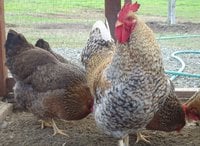 c4383eeb_DSC01051.jpeg3.3 MB · Views: 5,407
c4383eeb_DSC01051.jpeg3.3 MB · Views: 5,407 -
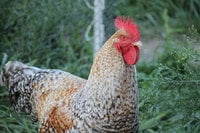 7c26d4a2_900x900px-LL-5c527bf6_IMG_0083.jpeg103.9 KB · Views: 5,393
7c26d4a2_900x900px-LL-5c527bf6_IMG_0083.jpeg103.9 KB · Views: 5,393 -
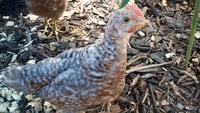 1f983d88_20150611_152103.jpeg3.8 MB · Views: 5,097
1f983d88_20150611_152103.jpeg3.8 MB · Views: 5,097 -
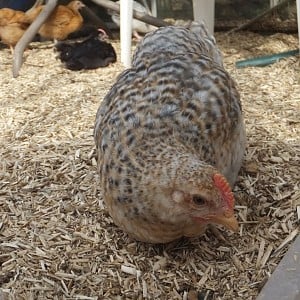 700o.jpg260.1 KB · Views: 10,368
700o.jpg260.1 KB · Views: 10,368 -
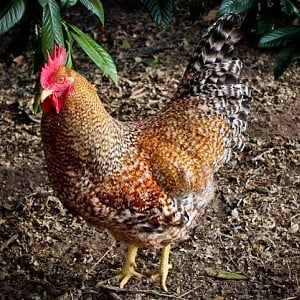 700.jpg112.7 KB · Views: 3,684
700.jpg112.7 KB · Views: 3,684 -
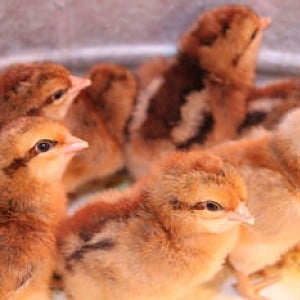 chicks.jpg20.3 KB · Views: 3,944
chicks.jpg20.3 KB · Views: 3,944 -
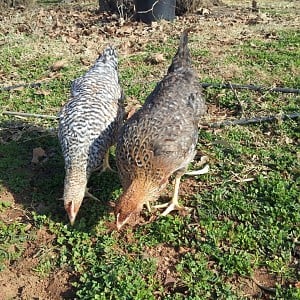 juvie.jpg339.9 KB · Views: 3,476
juvie.jpg339.9 KB · Views: 3,476 -
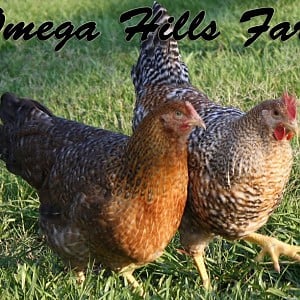 7006.jpg154 KB · Views: 3,858
7006.jpg154 KB · Views: 3,858
Bielefelder
- Added by Chaneys Ranch
- Create date
- Updated
The Bielefelder is a relatively new breed, development beginning in the 1970’s by Gerd Roth in the area of Bielefeld, Germany, hence the breed's name.
- NorthwoodsChick
- 5.00 star(s)
Pros: Super friendly in either sex, autosexing at hatch, cold hardy, gets along in mixed flock. large eggs by 7-8 months. Great foragers.
Rooster is gentle with mating but mates often so needs at a minimum 6 hens. I have 9 which is perfect.
Rooster is gentle with mating but mates often so needs at a minimum 6 hens. I have 9 which is perfect.
Cons: Quite slow to attain weight for meat production.
Eats a LOT of food unless able to forage.
Eats a LOT of food unless able to forage.
Stunning roosters, beautiful hens. Too slow growing for broilers. At 7 months my roo is only 5 lbs soaking wet!
I love my bielefelders though and will keep the roo but choose another breed for meat birds.


I love my bielefelders though and will keep the roo but choose another breed for meat birds.
- Purchase Price
- $6 male. $8.50 female chicks. McMurrays
- Purchase Date
- Dec 2021
NorthwoodsChick
Prone to disease. Can go broody. My broody killed a total of 5 chicks over two clutches. Trust me, break the broody and use an incubator for this breed.
- GermanKennhuhn
- 5.00 star(s)
Pros: friendly, decent layers, dual purpose, auto sex
Cons: eat a lot
All of you out there that are looking for a good dual purpose chicken, look no further!!! the Bielefelder, a magnificent breed originated in Bielefeld, Germany. Worth a pretty penny over here in America, these birds give me an average of 5 large eggs a week. The roosers are super docile but protective!
- NJClucker
- 3.00 star(s)
Pros: Friendly, Cold Hardy, Good Egg Production, Auto Sex Chicks
Cons: Feed Hogs, Slow To Mature, Susceptible To Sickness
I have had two flocks of Bielefelders, I was mostly drawn to them because of the chicks being able to be auto sexed at hatch. As I grew out the chick to pullets then hens they ate lots and lots and lots of feed, way more than the other breeds I had at the farm. They are a very heavy bird and due to their large size they did not start laying till close to 10 months old. Not a very cost effective breed to start out with as Bielefelder chicks prices are in the mid to hi end range, add in the amount of feed you will put into them before you see your first egg in 9-10 months.
Over the years of having them I have experienced a few times Bielefelder hens and roosters being fine in health the night before and the next morning I find one dead. The first few times I shrugged it off and figured it was just a weak bird that died however over the months and years I kept randomly happening. Out of a flock of 10 I have one lone hen left, she is now in our personal family flock and is still a good egg producer and one of our most friendly girls. In the end the Bielefelder breed was disappointing for us.

Over the years of having them I have experienced a few times Bielefelder hens and roosters being fine in health the night before and the next morning I find one dead. The first few times I shrugged it off and figured it was just a weak bird that died however over the months and years I kept randomly happening. Out of a flock of 10 I have one lone hen left, she is now in our personal family flock and is still a good egg producer and one of our most friendly girls. In the end the Bielefelder breed was disappointing for us.
- Purchase Price
- $25/chick
- Purchase Date
- May 2015
J
jfporter1120
I purchased 5 hens & 2 roos chicks. They are free ranged and have food in coup at night. This has saved large feed intake. They apparently take longer to lay but these birds are just awesome and worth the extra money to purchase, feed and wait for their large brown eggs. There are creative ways to cut down on feed usage by using herbs and greens etc. if you don't free range your birds. I have had many breeds and these Bielefelders overall beat them all hands down for me. They are the sweetest, calmest and most gorgeous of birds to me. Hope this helps.
.
.
- rusty acres
- 5.00 star(s)
I love my Bielefelders! They are good layers, with large pink-brown eggs, big beautiful birds, and great temperaments! They love being petted, very friendly, and great around my 3 young kids.
CelticRN56
I have a 12 week old Biedelfelder. She is sweet, friendly and docile. She is a big girl and loves her food. 
 She was my free surprise exotic and rare chick from Murray McMurray Hatchery. I recommend this breed as she is such a gentle soul. When roosting at night you can bank on her being on the highest roosting bar. I think that her size keeps the other more dominant hens from taking total control.
She was my free surprise exotic and rare chick from Murray McMurray Hatchery. I recommend this breed as she is such a gentle soul. When roosting at night you can bank on her being on the highest roosting bar. I think that her size keeps the other more dominant hens from taking total control.
- PeepersMama
- 5.00 star(s)
Pros: Quiet, friendly, smart, easy to tame, beautiful plumage
Cons: They're always under foot (but is that even a bad thing?)
The only Bielefelder I've had was an AWESOME chicken. She was a little angel, always got a long with her "sister" and was super gentle. Sadly she had to be culled along with over half the rest of our flock due to disease outbreak, so I didn't get to see how well she laid. I will be getting more of them this spring though, so I will edit this when I do!
EDIT: 6/26/18
I got six 'felder chicks this spring, and ever since day one they've been the sweetest, most mellow chickens I've ever seen. Publius, one of my two boys, was an absolute lap dog. Super super sweet, unflappable, always happy to see you. Sadly he was attacked by a dog a couple weeks ago and didn't survive (RIP Little man). The remaining roo is just as chill as Poobles. He weighs 4.5 pounds at 3 months old. Can't wait to see how this guy fills out.
My only problem with the hens is that I can't tell them apart. They all have such beaiful personalities, they want nothing more than to hang out in your lap or next you and and just chat. I can't recommend these guys more highly for a beginner flock.
They all have such beaiful personalities, they want nothing more than to hang out in your lap or next you and and just chat. I can't recommend these guys more highly for a beginner flock.
EDIT: 6/26/18
I got six 'felder chicks this spring, and ever since day one they've been the sweetest, most mellow chickens I've ever seen. Publius, one of my two boys, was an absolute lap dog. Super super sweet, unflappable, always happy to see you. Sadly he was attacked by a dog a couple weeks ago and didn't survive (RIP Little man). The remaining roo is just as chill as Poobles. He weighs 4.5 pounds at 3 months old. Can't wait to see how this guy fills out.
My only problem with the hens is that I can't tell them apart.
 They all have such beaiful personalities, they want nothing more than to hang out in your lap or next you and and just chat. I can't recommend these guys more highly for a beginner flock.
They all have such beaiful personalities, they want nothing more than to hang out in your lap or next you and and just chat. I can't recommend these guys more highly for a beginner flock.- CrowHollowFarm
- 5.00 star(s)
Pros: Lay great, autosexing, calm
Cons: Need to get meatier roosters
First off I love this breed, but I am honest. Mine are very hardy as chicks and are voracious bug eaters. And if left to free range the adults go also, but they still like their feed. My hens lay a large to extra large egg virtually everyday. I have noticed that I do need to be very selective when picking roosters, some will get more off a barred rock look, so those need to be culled. Also I have noticed that the lighter roosters also have a heavier and stocky frame which could get us closer to the duel purpose bird that they were intended to be. I am afraid if the lighter rooster are not selected then this breed may end up like some of the other autosexing breeds and start to loose that feature over time. My hens started laying l little before 6 months old. If I have chickens this will always be on my little farm.
- VistaSRJ
- 2.00 star(s)
Pros: Very gentle and friendly, beautiful roosters, decent egg layers
Cons: Very poor meat quality, eat a lot, drab hens
I've had 18-20 chicken breeds, and feel I can give a fair judgment on a few of them. The Bielefelder is definitely one of them. I started out with a group of 16, of which 9 were pullets and 7 were cockerels. I had heard so much about these birds that they made the top of my list when I was getting into chickens. I will admit that I raised them for a couple years and sold them to others, but all the time I was simply trying to make myself thrilled with them.
Temperament was definitely a pro for this breed. It was their best quality by far, and there is nothing bad I would say about them in this regard- if all you care about is a sweet disposition, this may be your breed. They were truly gentle giants, easy to handle, and preferred to be friendly rather than flighty. They got along with each other, even the roosters could be kept together with ease.
Color is a personal preference. I truly did not care for their color. The roosters were quite pretty, but the hens were so drab. And since you have one rooster to several hens, I have a preference for breeds where the hens are pretty. I did like the shape of the hens, they were very round and chunky looking.
Egg laying was decent when they did it, but I found them poor layers through both the cold winter and hot summer months. The eggs were good sized, but not as large as I expected from a giant breed.
Free ranging was poor. I allow my chickens to range at will sometimes, as well as keeping them in a very extensive fenced area. Usually I free feed, but once or twice I actually pulled their feed for a day in an attempt to force them to go out and forage. It didn't work; they just hung out till I gave them their feed and devoured it like they'd never had food in their life. And they eat a lot to begin with. For weight to feed, I rate this breed very poor. And that brings me to the last thing I will rate them for....
Meat quality was very poor. I have found in most cases that those of us who raise the larger breeds like this are not only looking for eggs, but also a decent table bird. I found Bielefelders terrible in every respect. I butchered a cockerel at 6 mths, which is my normal time for a heritage breed, and found him to have so little meat for his weight that I waited another couple months for the other cockerels. The meat to weight ratio was still very inferior to other dual purpose birds I've had. As to meat quality, I have never had such tough meat! Nothing we did could soften these birds. I'd think it was the way I raised them, except it was the same way I've raised my other cockerels who have made excellent table fare. Oddly enough, my breeds that ranged more than these were often far more tender. I really think it was just the breed itself.
So overall, I have to give them a low rating. They simply did not have enough good qualities to make me want them so I finally sold off my group and have moved on to birds that meet more of my criteria.
Temperament was definitely a pro for this breed. It was their best quality by far, and there is nothing bad I would say about them in this regard- if all you care about is a sweet disposition, this may be your breed. They were truly gentle giants, easy to handle, and preferred to be friendly rather than flighty. They got along with each other, even the roosters could be kept together with ease.
Color is a personal preference. I truly did not care for their color. The roosters were quite pretty, but the hens were so drab. And since you have one rooster to several hens, I have a preference for breeds where the hens are pretty. I did like the shape of the hens, they were very round and chunky looking.
Egg laying was decent when they did it, but I found them poor layers through both the cold winter and hot summer months. The eggs were good sized, but not as large as I expected from a giant breed.
Free ranging was poor. I allow my chickens to range at will sometimes, as well as keeping them in a very extensive fenced area. Usually I free feed, but once or twice I actually pulled their feed for a day in an attempt to force them to go out and forage. It didn't work; they just hung out till I gave them their feed and devoured it like they'd never had food in their life. And they eat a lot to begin with. For weight to feed, I rate this breed very poor. And that brings me to the last thing I will rate them for....
Meat quality was very poor. I have found in most cases that those of us who raise the larger breeds like this are not only looking for eggs, but also a decent table bird. I found Bielefelders terrible in every respect. I butchered a cockerel at 6 mths, which is my normal time for a heritage breed, and found him to have so little meat for his weight that I waited another couple months for the other cockerels. The meat to weight ratio was still very inferior to other dual purpose birds I've had. As to meat quality, I have never had such tough meat! Nothing we did could soften these birds. I'd think it was the way I raised them, except it was the same way I've raised my other cockerels who have made excellent table fare. Oddly enough, my breeds that ranged more than these were often far more tender. I really think it was just the breed itself.
So overall, I have to give them a low rating. They simply did not have enough good qualities to make me want them so I finally sold off my group and have moved on to birds that meet more of my criteria.
- jbkirk
- 5.00 star(s)
Pros: Autosexing, Gentle, Meaty
Cons: Late laying,
Be very careful who you buy from. The lady who I bought from (I'm not blaming her)must have had some other blood in her flock as mine laid normal sized eggs not the X-Large or Jumbo that other reviewers got.
- DesertChic
- 4.00 star(s)
Pros: Incredibly sweet and friendly, outstanding roosters.
Cons: Eat a lot and do NOT handle hotter climates well.
I want to give as realistic and thorough an assessment of these birds as possible because it's far too easy to fall in love with their beauty and wonderful personalities, and miss the few potential 'negatives' about the breed. I acquired all of my birds via hatching eggs purchased and shipped from two separate breeders. My hatch rates were good, especially considering the effects of shipping, but from the beginning I noticed that chicks failed to hatch after lockdown in spite of having developed well up until that point in incubation.
All chicks are adorable, but Bielefelder chicks are especially easy to keep. They were so quiet and content that I would check on them multiple times per day out of fear that they'd died or something. And whereas many breeds of chick scatter in panic when you reach into the brooder, the Bielefelder chicks wouldn't hesitate from the beginning to approach my hand, accept affection, and peep happily or rest quietly when handled. That said, they are also eating machines and most certainly ate more than other breeds I've raised. And that heavier feed consumption continued throughout their development and even into adulthood. Now that my birds are mature they don't eat significantly more than some of my other adult breeds, but it would be wrong to classify Bielefelders as feed efficient.
The personalities of these birds are some of the best I've encountered, especially among the males. At one point I had six Bielefelder cockerels and there wasn't an aggressive or flighty one in the bunch. True, a couple were less friendly and more nervous than others during adolescence, but not one of them could ever have been considered aggressive to humans or other chickens. Two of my favorite roosters are Bielefelders and don't hesitate to hop up onto my lap to be cuddled and pet, and will even fall asleep on my lap while I stroke their backs. They are very tolerant of other roosters, including other breeds of roosters, and while very friendly still know how to assert themselves and hold their status as regal leaders of the flock. And when it comes to taking care of the girls, these boys are real gentlemen. I call one of my Bielefelder roosters "the great uniter of my flocks" because he calls forth even the shy and nervous hens to receive treats, protecting them from more aggressive hens, and manages to bring multiple flocks together to live in harmony. My boys also work in tandem to protect the hens and pullets from any potential threats, with one of them standing guard while the other herds the girls to safety. My mature roosters weigh between 9 and 11 lbs each.
The hens, in my experience, have more diverse personalities than the roosters. Most seem to be exceptionally affectionate to the point of almost being overly trusting and constantly underfoot. They love to be lap chickens and are rarely nervous, and while some of my girls are very quiet, others are downright chatty. And although some more assertive breeds may pick on these gentle giants, I have seen my Bielefelder girls stand up to some of those bullies in order to defend themselves and even to defend my little Silkies. They form strong friendship bonds both within their own breed and with other breeds. In fact, the only negative thing about the hens specifically is that they take a long time, in my experience, to reach point of lay. My own birds didn't begin laying until 44 weeks of age, and while their eggs from the beginning were large to X-large in size, they also tend to be torpedo shaped with low hatching rates in spite of high fertility. Just as with those shipped eggs I received, many of the eggs begin to develop and then fizzle out by day 18 of incubation. I now plan to try hatching some under a broody hen to see if I get better results. My mature hens weight between 6.5 and 8.5 lbs each.
My number one warning about this breed is that they simply do not handle high temperatures, and especially high temperatures with high humidity, well at all. This breed seems to retain more far more body fat than other breeds I've owned and suffer horribly as the temperature increases. I live in the desert southwest and had to resort to extraordinary measures to care for my Bielefelders last summer, including providing them with air conditioning. I'm now working towards improving their heat tolerance, but it will be a long-term project and will undoubtedly require a great deal of time and patience. If you live in a cooler, more temperate environment though, Bielefelders truly are a wonderful dual-purpose breed that does very well free-ranging on fresh greens to counteract some of the cost of feed. Their meat tastes fantastic and is very juicy, with plenty of fat to render for roasting or for cooking other foods. I've no regrets about acquiring them, even if they do require a bit more attention and care than my other breeds during the summer. Their outstanding personalities make it worth it to me to keep them in my flock.
All chicks are adorable, but Bielefelder chicks are especially easy to keep. They were so quiet and content that I would check on them multiple times per day out of fear that they'd died or something. And whereas many breeds of chick scatter in panic when you reach into the brooder, the Bielefelder chicks wouldn't hesitate from the beginning to approach my hand, accept affection, and peep happily or rest quietly when handled. That said, they are also eating machines and most certainly ate more than other breeds I've raised. And that heavier feed consumption continued throughout their development and even into adulthood. Now that my birds are mature they don't eat significantly more than some of my other adult breeds, but it would be wrong to classify Bielefelders as feed efficient.
The personalities of these birds are some of the best I've encountered, especially among the males. At one point I had six Bielefelder cockerels and there wasn't an aggressive or flighty one in the bunch. True, a couple were less friendly and more nervous than others during adolescence, but not one of them could ever have been considered aggressive to humans or other chickens. Two of my favorite roosters are Bielefelders and don't hesitate to hop up onto my lap to be cuddled and pet, and will even fall asleep on my lap while I stroke their backs. They are very tolerant of other roosters, including other breeds of roosters, and while very friendly still know how to assert themselves and hold their status as regal leaders of the flock. And when it comes to taking care of the girls, these boys are real gentlemen. I call one of my Bielefelder roosters "the great uniter of my flocks" because he calls forth even the shy and nervous hens to receive treats, protecting them from more aggressive hens, and manages to bring multiple flocks together to live in harmony. My boys also work in tandem to protect the hens and pullets from any potential threats, with one of them standing guard while the other herds the girls to safety. My mature roosters weigh between 9 and 11 lbs each.
The hens, in my experience, have more diverse personalities than the roosters. Most seem to be exceptionally affectionate to the point of almost being overly trusting and constantly underfoot. They love to be lap chickens and are rarely nervous, and while some of my girls are very quiet, others are downright chatty. And although some more assertive breeds may pick on these gentle giants, I have seen my Bielefelder girls stand up to some of those bullies in order to defend themselves and even to defend my little Silkies. They form strong friendship bonds both within their own breed and with other breeds. In fact, the only negative thing about the hens specifically is that they take a long time, in my experience, to reach point of lay. My own birds didn't begin laying until 44 weeks of age, and while their eggs from the beginning were large to X-large in size, they also tend to be torpedo shaped with low hatching rates in spite of high fertility. Just as with those shipped eggs I received, many of the eggs begin to develop and then fizzle out by day 18 of incubation. I now plan to try hatching some under a broody hen to see if I get better results. My mature hens weight between 6.5 and 8.5 lbs each.
My number one warning about this breed is that they simply do not handle high temperatures, and especially high temperatures with high humidity, well at all. This breed seems to retain more far more body fat than other breeds I've owned and suffer horribly as the temperature increases. I live in the desert southwest and had to resort to extraordinary measures to care for my Bielefelders last summer, including providing them with air conditioning. I'm now working towards improving their heat tolerance, but it will be a long-term project and will undoubtedly require a great deal of time and patience. If you live in a cooler, more temperate environment though, Bielefelders truly are a wonderful dual-purpose breed that does very well free-ranging on fresh greens to counteract some of the cost of feed. Their meat tastes fantastic and is very juicy, with plenty of fat to render for roasting or for cooking other foods. I've no regrets about acquiring them, even if they do require a bit more attention and care than my other breeds during the summer. Their outstanding personalities make it worth it to me to keep them in my flock.
- CochinLover1
- 5.00 star(s)
Pros: Great egg layers, large brown eggs. Very flavorful meat.
Cons: Eat a ton as chicks.
I have had bielefelders for 4 years now. They are an excellent breed. Their temperament is very good as well. My Bielefelders are very sweet. I have never had any of my roosters attack me or even give me a sideways glance. The roosters are also friendly and nice towards their hens and each other. They are great egg layers and the meat is amazing. We free range our birds and they make a very good free range breed. These birds are VERY large when fully mature, and it takes awhile but it's worth it. Their plumage is very soft and they are sex-linked so you are able to tell male from female as soon as they hatch. Love these birds and can't say enough good things about them. They are a family favorite to be sure!!!
- Eggscoozme
- 4.00 star(s)
Pros: Auto-sexing, Lots of meat, Docile, Social, Not Noisy, Cold & Rain Hardy, 70g eggs few mths into laying, Handsome/Discerning Roosters, Good Foragers,
Cons: Hens not much to look at IMO, Big eaters, but DO forage well if allowed.
Have had over 30 breeds of chickens in past, but decided to focus on our Bielefelders. Lots of meat, docile, not flighty yet they can fly up to 6ft fence to roost, love the auto-sexing feature, so we can tell how many we'll have to butcher come time and how many for laying, etc....great Homesteading chicken - better than a Leghorn, for example. I say cold AND rain hardy, because they don't mind the snow, and choose to go out in the rain, too. These chickens are nice and don't freak out when you walk by them. Hens will let you know when they've laid, but other than that, don't make a lot of noise. Lay nearly everyday during laying season, and every other day off season. As usual, pullet eggs are smaller than hens, but these gals will put out a medium or medium+ right out the gate. Couple months later you'll have 70g eggs regularly. They are tall, light brown to brown and sometimes speckled. Good all around chicken to have. We have started a "Biel Farm" . There are so many other breeds out there that look great, perhaps lay even better, or have other better qualities, but it was not practical for us to keep buying different chicken breeds, but to focus on one that provides all what we need for homesteading. Biels fit that bill! We will have a Sea-of-Biels come Spring (or sooner), God Willing!
- Purchase Price
- 30.00
- Purchase Date
- 2015-04-01
- Our Roost
- 3.00 star(s)
Pros: Colorful and pleasant
Cons: Call Molly Maid!
These birds are some of the worst house keepers I have ever had for a breed. You will find that they are very dirty birds. Generally speaking, they dont roost well and will either sleep in nesting boxes or on the floor of the coop. Expect your maintenance and cleanup to be taxing. especially keeping your nesting boxes clean for other birds to lay.
I must say they are colorful and a very docile chicken of decent size for a dual purpose breed. They do provide a good meal and nice sized eggs. You may do well to take a hard look at other breeds similar before choosing to spend good money on this breed.
I must say they are colorful and a very docile chicken of decent size for a dual purpose breed. They do provide a good meal and nice sized eggs. You may do well to take a hard look at other breeds similar before choosing to spend good money on this breed.
- Odelia
- 5.00 star(s)
Pros: Gentle, auto-sexing, jumbo sized eggs
Cons: So gentle they can be picked on by other breeds. Rooster can be a bit lazy about mating with his ladies.
I have a young daughter and I was nervous about having roosters. You hear such terrible tales of kids being attacked by them. If you have kids and want to keep a rooster this is the perfect breed. My daughter loves him. I wish this was an APA recognized breed so she could show him in 4-H. The rooster is friendlier than the hens towards people and will tolerate being pet. He is easy to catch and will let you hold him without much fuss. The ladies are not mean they just prefer not to be touched. They will quite happily come if you have treats. They are a very food oriented. You can go in to collect eggs from the nest and they will just sit there while you take the eggs out from under them and will not peck at you. Their eggs are very large and they are good layers. I am getting about 5 eggs a week from each of my girls. I also love the color of the eggs. The darkest eggs are about the color of milk chocolate.
- ChickCrazed
- 5.00 star(s)
Pros: Beautiful, Docile, Great Layers, Friendly, Huge
Cons: Eat more when growing, may get picked on by other breeds
I've had these birds a bit over a year and I will never have a flock without them again. They come just as advertised. Bielefelders are just breathtaking in real life, with their vibrant coloration and enormous size. They are super friendly and inquisitive and very docile (especially the roosters). There is never any fighting and everyone just gets along! They do have a tendency to get picked on in a mixed flock so I would recommend separation or mixing of only super docile breeds. Bielies lay very large eggs and are nice, regular layers. They are also autosexing, which is nice.
They do eat more than a lot of breeds as they grow. That did seem to stabilize as they got close to full grown. They are also still relatively rare and may be difficult to find.
I would absolutely recommend this great breed to anyone, and think they would especially be great for a first time chicken owner. They are so easy going and docile that they would be a great addition to any backyard.
- Chaneys Ranch
- 4.00 star(s)
Pros: Friendly, heavy birds. Very attractive
Cons: None
I acquired a pair of these birds a few months ago, estimated age around 6 months. Calm, friendly demeanor and the cockerel is even more social than the pullet. I have kept them on 20% flock raiser and am pleased they are still growing larger. My pullet has begun laying, at about 8 months of age. Her eggs are already the size of a wyandotte's. They do seem to eat more than other LF birds but with the steady growth in them, i would expect it! I will absolutely continue to keep them and hope to grow my flock.
- RFR of CA
- 4.00 star(s)
Pros: XL to jumbo eggs, gentle if a bit dull, huge nonagressive roosters, take confinement well, non broody hens.
Cons: Grow so quickly that they eat alot of feed! Break more eggs from large body size.
Have owned for a bit over a year now. These are big birds and they do eat a lot while growing. By adulthood they seem to eat about the same as everyone else. The cockerels especially can use high protein or game feed. They are super easy to sex right out of the egg always and are pretty hardy overall. They forage well, but tend to hide eggs if you leave them out too much. They are not fliers and can be kept in fencing similar to orpingtons. I have not had any go broody. Molt was light this fall. They did need lights up after molt to start laying again. Always gentle, but a bit "slow", if you know what I mean

Took a rooster to auction and buyers joked that they could probably ride him home

- Purchase Date
- 2014-02-01
